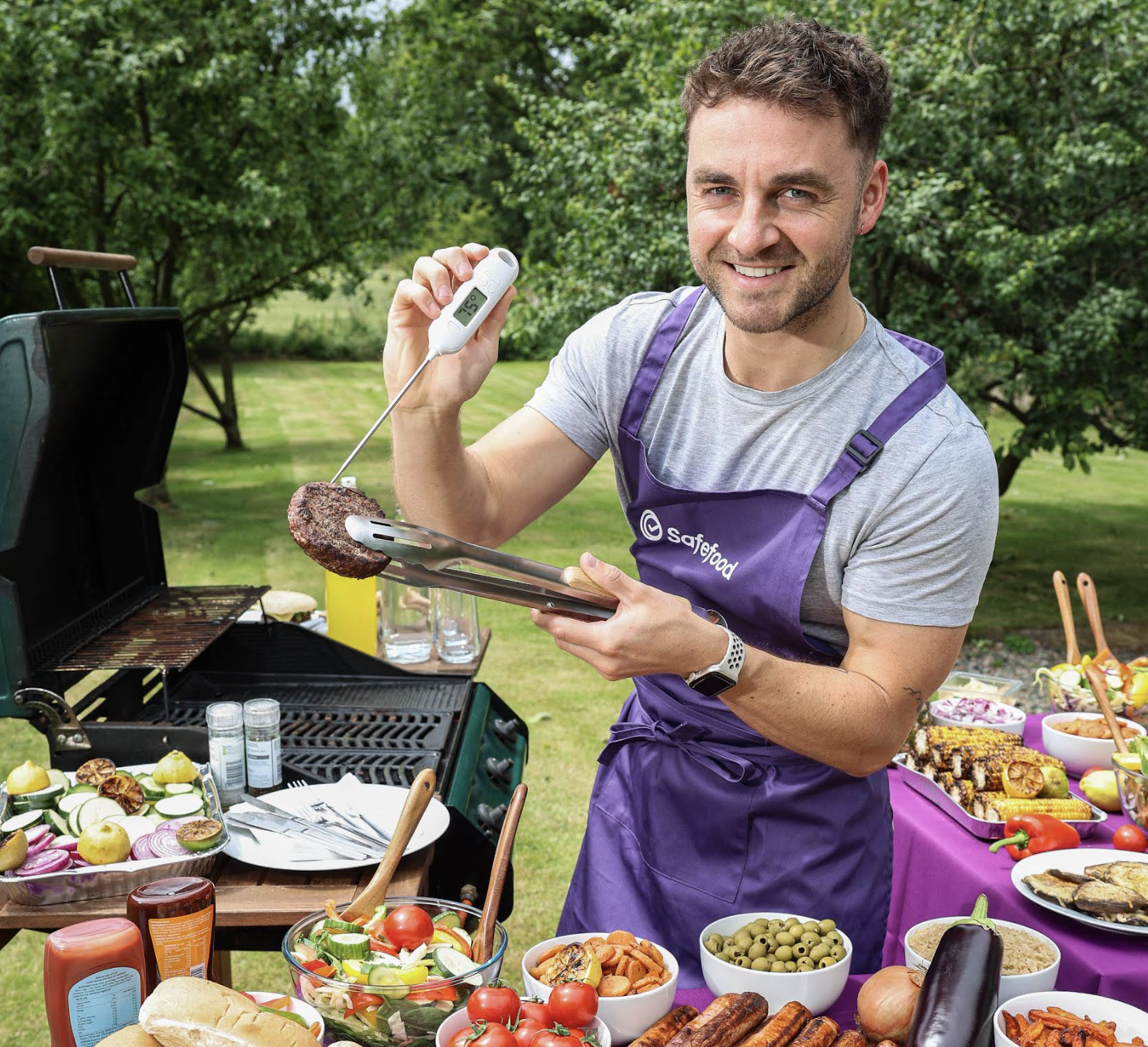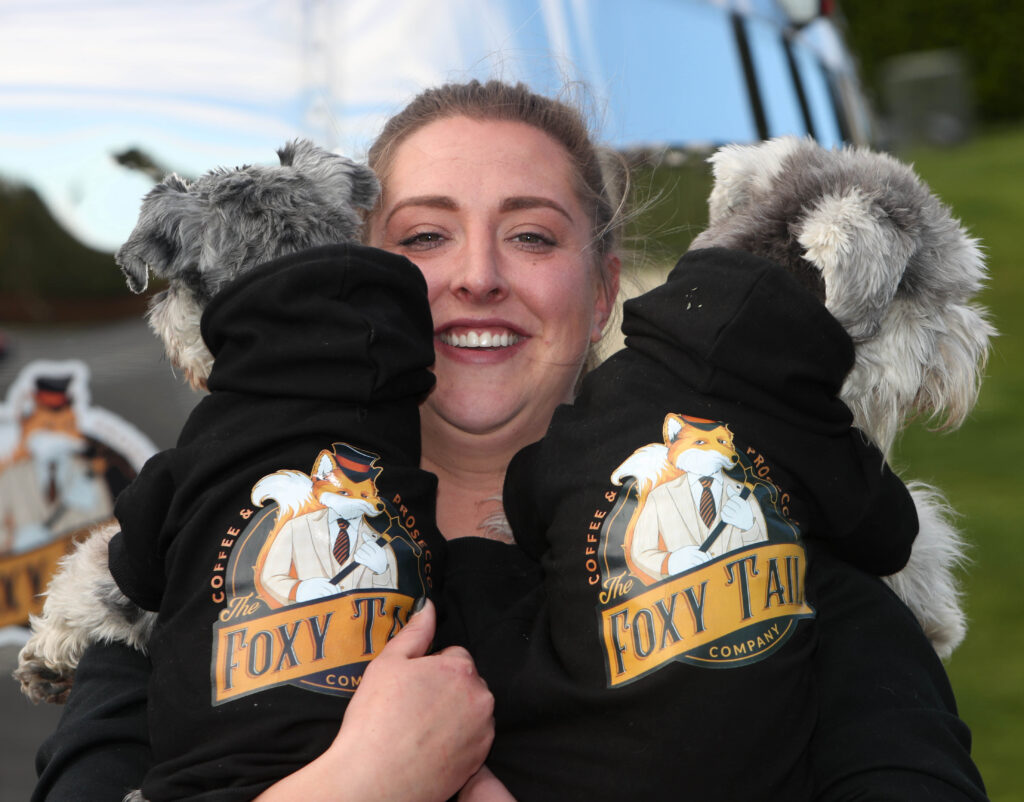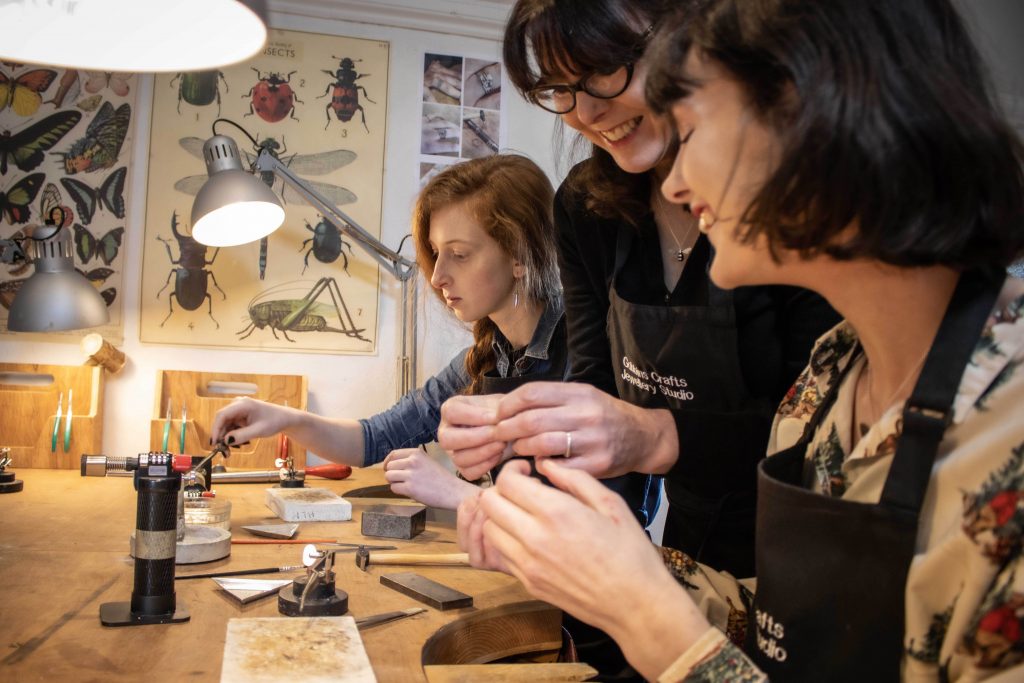Safefood is urging home barbecue chefs across Northern Ireland to use a meat thermometer as the weather heats up this August to avoid serving raw or undercooked barbecue meat to friends and family.
Recent research by Safefood has revealed that almost half (45%) of local barbecue-goers have been served raw or undercooked barbecue meat like burgers, chicken, and sausages and left it untouched due to the risk of food poisoning.
With the sunshine making an appearance this August and households hoping to light up the barbecue, Safefood’s survey of 300 adults across Northern Ireland sheds light on the region’s barbecue cooking habits.
The research discovered that two-thirds of home barbecue chefs were unaware of the correct temperature required to ensure barbecue meats were cooked and safe-to-eat. Worryingly, it also found that 5% of home barbecue chefs purely relied on taste to check if barbecue meat is cooked.
Almost a third (30%) of people say they use a meat thermometer to measure the internal temperature of cooked barbecue meats like burgers, chicken, and sausages so they can determine whether it’s safe to eat before serving to guests.
In response to these worrying food safety behaviours home cooks may be making when hosting summer barbecues, Safefood is urging people to use a meat thermometer and take the guess work out of cooking barbecue meats by checking they are cooked to 75 degrees Celsius.
Trish Twohig, Safefood’s Director of Food Safety said: “A huge ‘well done’ to those who have made their meat thermometer a part of their barbecue routine. With so many enjoying barbecues in the summer, it’s important that we’re all aware of the risk of food poisoning.
“A meat thermometer provides an extra layer of reassurance when cooking meats like burgers, sausages, chicken and kebabs.
“If you don’t have a meat thermometer, follow the three checks of ensuring these foods are cooked until piping hot, with no pink meat and the juices run clear. But we’d encourage you to buy an easy-to-use meat thermometer”
Safefood has put together a list of top tips for a safe and tasty barbecue:
- Keep perishable foods like salads, coleslaw, and quiche in your fridge until you are ready to serve them.
- Burgers, sausages and kebabs, pork and poultry must be cooked all the way through – take your food off the heat, pop the thermometer in the thickest part of the meat and when it reaches 75 degrees Celsius, then it’s cooked and ready to eat. Steaks can be served as ‘rare’ as harmful bacteria are on the outside only (and not in the centre).
- If you don’t have a meat thermometer, follow the three checks of ensuring barbecue meats like burgers, sausages and chicken are cooked until piping hot, with no pink meat and the juices running clear.
- If you like to marinate your meat, make sure any marinade used on raw meat is not then used as a sauce to coat vegetables or cooked meat as it will contain raw meat bacteria.
- If you choose to barbecue any frozen food, it must be completely thawed first on the bottom shelf of your fridge before you cook it.
- When handling raw meat and poultry, wash your hands thoroughly and frequently, most importantly before going on to prepare salads and other ready-to-eat foods.
- Once your meat is cooked thoroughly, make sure to keep cooked meat separate from raw meat and use separate chopping boards, cooking utensils and plates. Harmful bacteria in raw meat, poultry and their juices can cross-contaminate cooked food and lead to food poisoning, something your family won’t thank you for.
If you have barbecue leftovers, let the food cool, then refrigerate it within two hours of cooking. Consume leftovers within three days and reheat them only once. Always remember with leftovers – if in doubt, throw it out
For more information visit www.safefood.net/news or follow safefood on Facebook, Twitter & Instagram.





